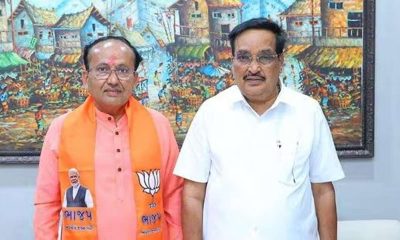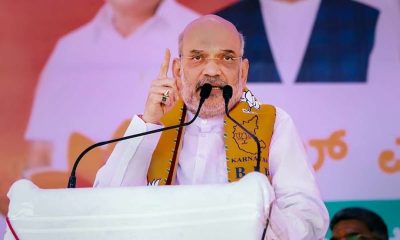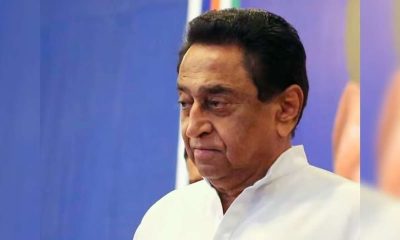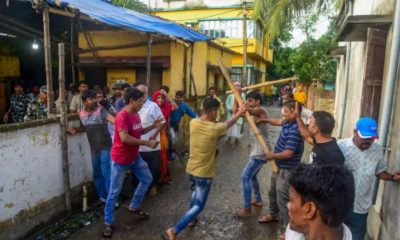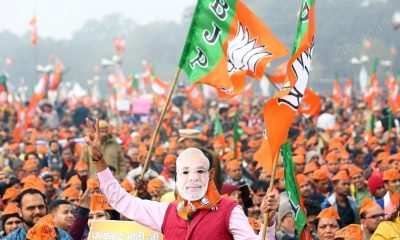Latest Politics News
Jallikattu: Political rumblings on the Marina?
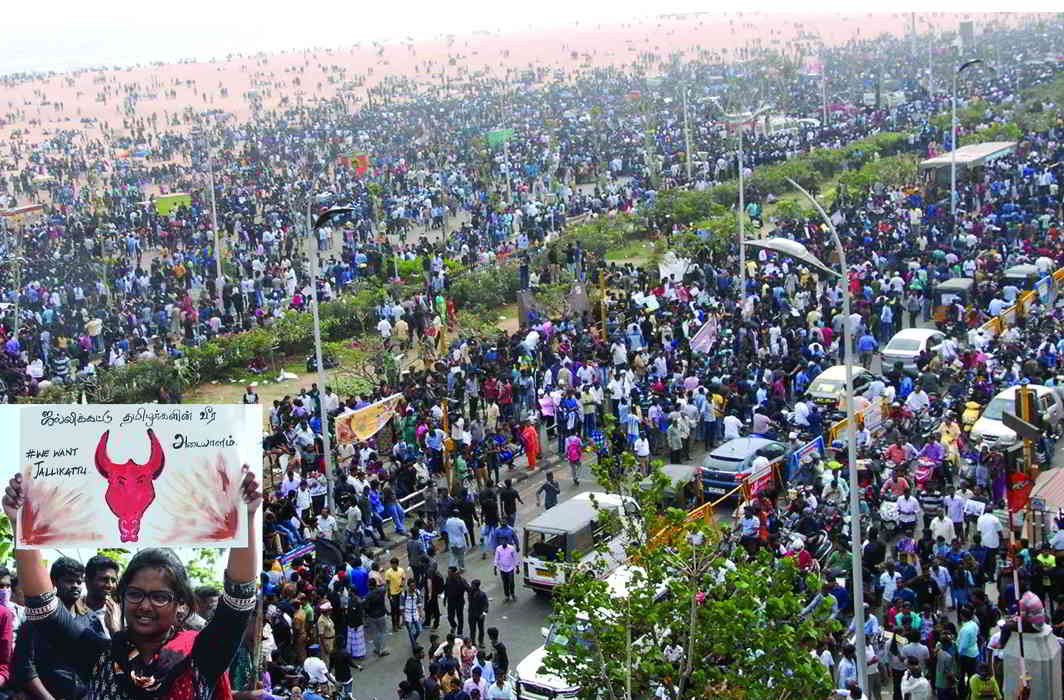
[vc_row][vc_column][vc_column_text]Making sense of mass protests against the ban on jallikattu
SS Kumar
The jallikattu protests animating Tamil Nadu over the last week are not really about jallikattu: anything but. And it’s not about spontaneity, again.
Of the tens of thousands gathered at the Marina—under the benign and approving eye of the state police—it’s unlikely even one percent is likely to have seen a jallikattu performance. If it was about anything, it was about Tamil pride: read, a palpable sense of Tamil victimhood.
T Ramakrishnan, the son of the noted Tamil writer Ashokamitran, a senior Hindu journalist and a keen political observer, suggested: If J Jayalalithaa were alive, this wouldn’t be happening. How so? The jallikattu ban cropped up in 2015 and 2016, but roused no passions as long as Jaya was around; after that, it was an issue waiting to happen. Whether this says anything about the Tamil psyche and its yearning for a strong imperious leader like her, MGR, or M Karunanidhi or not, there is a perception that Tamilians’ maryaadai (respect, pride) was at stake. This, in essence, is what it’s about.
So, ordinary Tamils chafing at what they perceive are slights … Karnataka defying the Supreme Court and withholding Cauvery water, Kerala’s intransigence over the Mullaperiyar dam, and a feeling that the central government was not sympathetic to the state… waiting for an issue to vent all that pent up feeling.
And happen it did after an extraordinary series of circumstances. The immediate provocation was a report that spread like wildfire that central government offices would stay open in the state on Pongal day with Tamil staff allowed the day off, when the practice was that central government offices were closed for Pongal… as for other regional holidays in other states.
That marked the start: in no time, it spread from the traditional jallikattu areas in central Tamil Nadu—Alanganallur in Madurai district is the epicentre of the jallikattu tradition, a hangover from a feudal sport of the mirasdars/zamindars, much like the gladiatorial contests of ancient Rome. No more, no less… and certainly not intrinsic to Tamil culture, or the state as a whole—jallikattu is unheard of in the Nilgiris district; the northern districts of the state where Chennai lies; or the deep south.
And yet, groups of protesters in every locality, every major traffic junction, every neighbourhood are raising the slogan “jallikattu vendum” (we want jallikattu) as if their birthright was being snatched away.
On the Marina, the crowd chanted, “Tamizhan endru sollu da, thalai nimirnthu nillu da (Say you’re a Tamil, hold your head up high!).” On Friday, January 20, the swelling youth protest against the ban on jallikattu (the sport of bull taming, literally the (salli) coins tied to a bull’s horns (kattu) entered into its fourth day—leaving the government scrambling to find a solution.
How much of a role did social media play in propelling the demonstrations? Many have cited WhatsApp as a key driver—interestingly, as I was writing this, a mail dropped into my box, extolling Tamil as the only surviving classical language (with a link to a Hindu article), and concluding with the ringing declaration that “Tamilian is not identified by caste and community, but a powerful organised civilization.” And the punchline at the end: Tamilan endru sollada. Coincidence? Hardly.
But the anonymous e-mail from windmerumalai@gmail.com made an interesting point—the students seem united by a Tamil identity, an identity transcending caste and community, so ingrained in Tamil society, just below the surface, seething, simmering… and ready to explode into violence. One of the striking things is the sheer numbers of women and children at the protest, and the sight of scores of young Muslim women with head scarves. Yes, community transcended.
Spontaneity? The organisation was far too efficient and streamlined for this to be the case. Food packets—and the well-loved biryani—kept arriving by the truckloads, with teams of volunteers at hand to distribute them; chai served up as a welcome drink; mobile toilets and caravans for women to freshen up. No, it was being orchestrated; but by who?
One clue: Narendra Modi has quickly become the villain of the piece. If Modi and the BJP, scented an opportunity after Jaya’s passing to make inroads, it’s certainly been set back. Many in political circles believe it’s an attempt by Christian and Muslim groups to foster a pan-Tamil identity to keep Hindutva forces from regrouping.
If that is indeed the case, then the strategy has been a smashing success; established parties have been left behind and are now scrambling to catch up, lest they lose their relevance too. The ruling AIADMK, DMK, the Left, the Pattali Makkal Katchi, even fringe pro-Eelam and Dalit outfits, who’ve always exerted an influence all out of proportion to their numbers, must be scratching their heads.
Although the Modi government has approved an ordinance brought about by the Tamil Nadu government in favour of jallikattu but what it has done is to unleash Tamil identity politics again. The last time it happened, during the anti-Hindi riots of 1965, it led to the decimation of the Congress and the rise of the Dravidian parties: a tectonic shift. Will jallikattu do the same?
—the writer is a former associate editor of The Hindu, The Hindu
BusinessLine and Acting Editor of The New Sunday Express
Lead picture: Protestors at Marina Beach, Chennai, demanding that the ban on jallikattu be lifted. Photos: UNI[/vc_column_text][/vc_column][/vc_row]
2024 Lok Sabha Elections
Election Commission books BJP MP Tejasvi Surya for seeking votes in the name of religion
Tejasvi Surya was booked by the Karnataka chief electoral officer for seeking votes in the name of religion in a video posted on X.
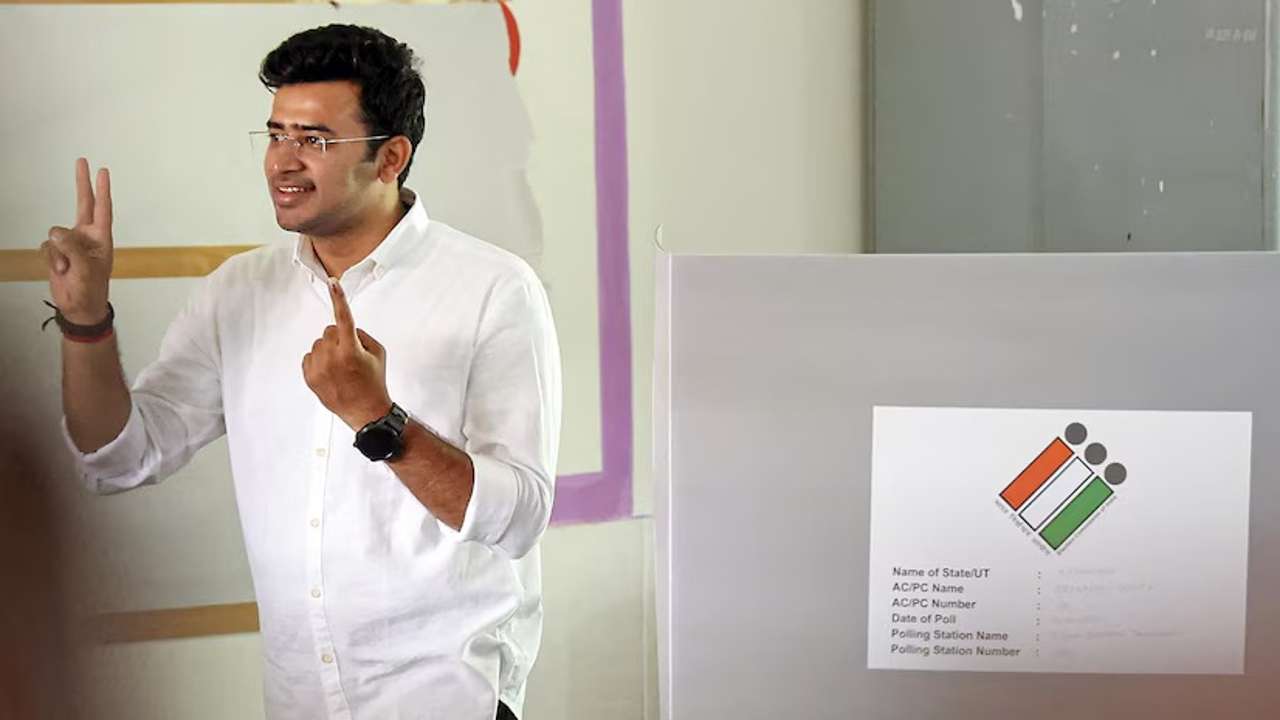
Bengaluru South sitting MP and BJP’s candidate from the same seat Tejasvi Surya was reported to the chief election officer of Karnataka for uploading a video on X in which he asked for votes based on religion.
Karnataka Chief Election Officer tweeted on Friday during polling in the crucial seat where Tejasvi Surya MP is running against Congress’s Sowmya Reddy. He tweeted, case is booked against Tejasvi Surya MP and Candidate of Bengaluru South PC on 25.04.24 at Jayanagar PS u/s 123(3) for posting a video in ‘X’ handle and soliciting votes on the ground of religion.
Tejasvi urged people to cast votes and utilize their right to do so on multiple occasions. He released the last video at 2:00 PM, mentioning Ram Mandir in addition to border security and Article 370 in his plea to make the most of the final four hours of voting.
Earlier, Tejasvi gave an 80%–20% parallel to implore BJP supporters to turn out in large numbers at the polls. Only 20% of the BJP’s 80% voter base actually turned up to vote. C ongress’ voters are 20 % but they come out and vote 80%. He added, in most circumstances, this is the actual situation at the polls. Telling the impportance of vote he said that every votes counts. He also urged to vote and added if you don’t, then 20% of Congress will undoubtedly be doing so.
Meanwhile, Karnataka recorded 50.93% voter turnout till 3pm, with Bengaluru South recording 40.77%. Up till 3 pm, Udupi Chikmagalur had the highest turnout (57.49%), Hassan had the next highest percentage at 55.92%, Dakshina Kannada at 58.76%, Chitradurga at 52.14%, Tumkur at 56.62%, Mandya at 57.44%, Mysore at 53.55%, Chamarajanagar at 54.82%, Bangalore Rural at 49.62%, Bangalore North at 41.12%, Bangalore Central at 40.10%, Bangalore South at 40.775, Chikkballapur 55.90%, and Kolar 54.66%.
2024 Lok Sabha Elections
Mallikarjun Kharge writes to PM Modi seeks time to explain Congress’s Nyay Patra
Congress chief Mallikarjun Kharge wrote an open letter to PM Modi and said the Prime Minister is being misinformed by his advisors
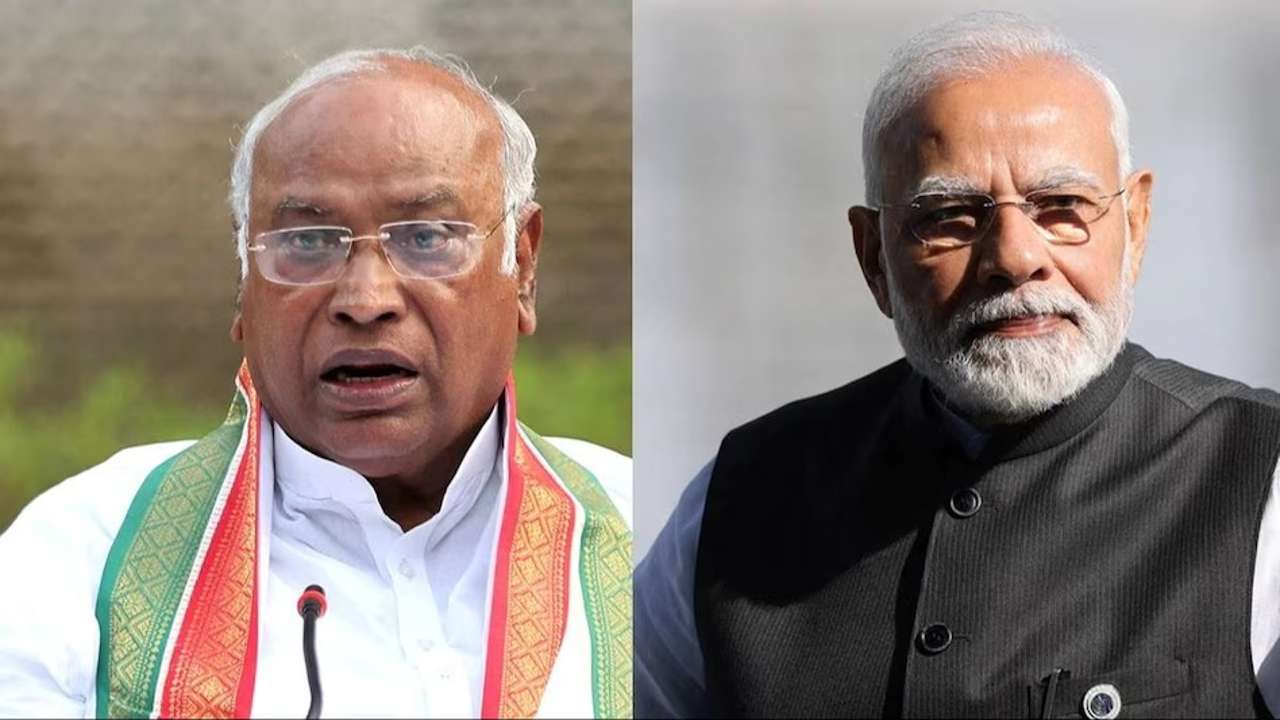
Congress President Mallikarjun Kharge wrote Prime Minister Narendra Modi a letter on Thursday, requesting an explanation of the ancient party’s Nyay Patra.
In support of the Congress manifesto, Kharge said that the Nyay Patra aims to give justice to marginalised people from all castes and communities, including women, children, farmers, and labourers.
The Congrss president said, PM’s advisors are misrepresenting things to him that aren’t even included in our manifesto. Kharge said, he would be more than happy to meet with him in person to explain thehir Nyay Patra’ so that, as prime minister of the country, he dosen’t make any statements that are false.
It has become his habit to seize on a few words taken out of context, create communal divide, Kharge added.
The Congress leader said that he is neither shocked nor surprised by the language used by the prime minister, in reference to Modi’s recent addresses.
It was expected that the PM and other leaders from his party would start speaking in this manner after he saw the dismal performance of the BJP in the first phase of the elections, he continued.
The impoverished and their rights have been a topic of discussion in Congress (nyay). We know that you and your administration do not care about the underprivileged and destitute, he remarked.
Continuing his attack on the prime minister, Kharge said, PM’s ‘suit-boot ki sarkar’ works for the corporates whose taxes you reduced while the salaried class pays higher taxes. The poor pay GST even on food and salt and the rich corporate claim GST refunds. That is why, when we talk of inequality between the rich and the poor, you are purposely equating it with Hindu and Muslim.
Following the criticisms made by the prime ministers in their recent election speeches, Kharge has responded. Modi has not held back when criticizing the main opposition party at his rallies, accusing them of scheming to redistributing assets and referring to the Congress manifesto as a “imprint of the Muslim League.
2024 Lok Sabha Elections
Bollywood actor Neha Sharma campaigns for her father Ajit Sharma in Bhagalpur, Bihar
The Bollywood actor posted a video on her Instagram handle which showed her journey through various districts of Bihar, including Kishanganj, Banka, Purnea and Katihar. She was dressed in a traditional salwar kameez and was seen greeting and encouraging the public to cast their votes.
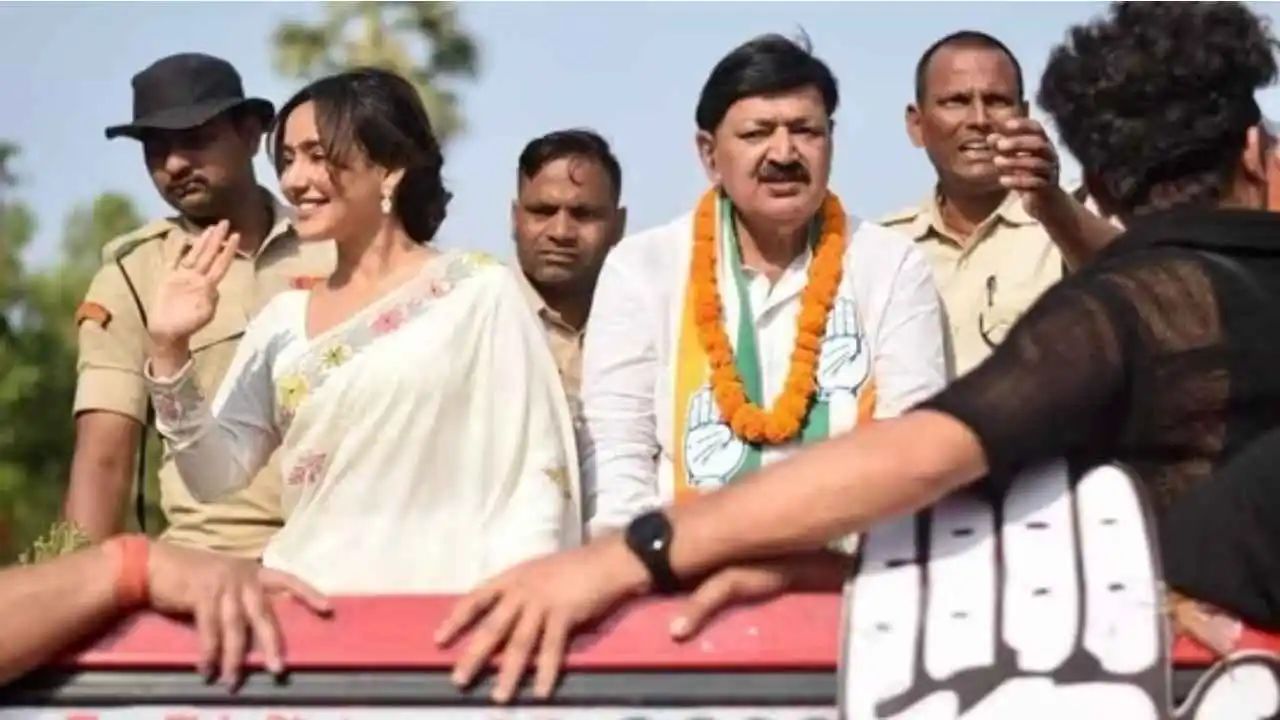
Bollywood actor Neha Sharma’s recent participation in a roadshow in Bihar has taken the internet by storm. Sharma, known for her roles in films like Tum Bin 2 and Crook, was seen supporting her father, Ajit Sharma, who is contesting from Bhagalpur Lok Sabha seat on a Congress ticket. The roadshow came amid speculations that the actor might enter politics. But, it is now clear that she was just campaigning for her father.
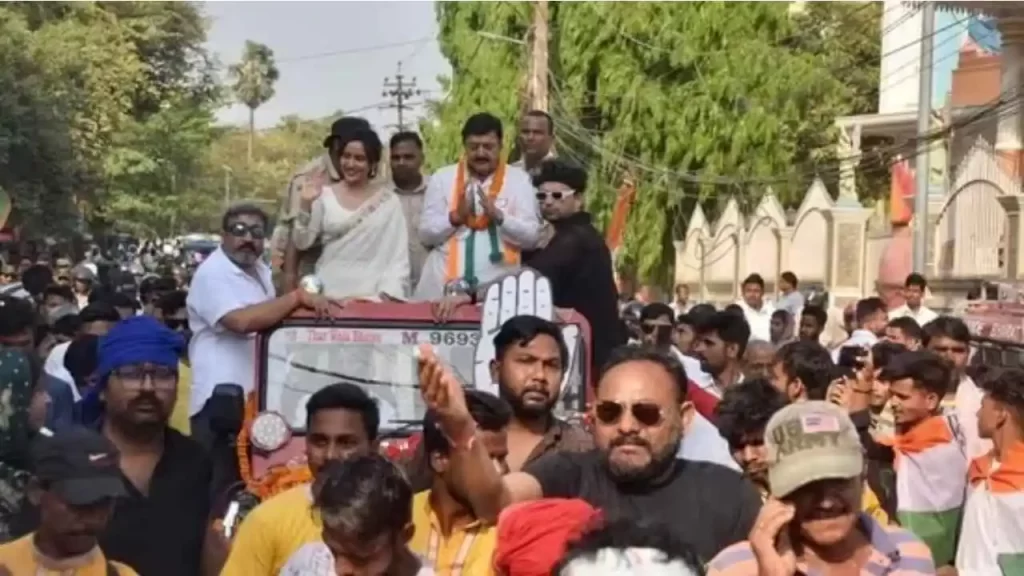
The Bollywood actor posted a video on her Instagram handle which showed her journey through various districts of Bihar, including Kishanganj, Banka, Purnea and Katihar. She was dressed in a traditional salwar kameez and was seen greeting and encouraging the public to cast their votes.
The actor received a warm reception and love from a large crowd in Pirpainti and Kahalgaon during her roadshow. She wrote on Instagram that it is said when someone gives one a place in their heart, then they live there forever. She said her heart is full of all the love and support she was receiving from the people. She thanked the people for the warm welcome she got in Pirpainti and Kahalgaon. Aapka pyar sar ankhon par.
Another video, circulating on social media showed the actor actively participating in her father’s election campaign in Bhagalpur. The election to the Bhagalpur Lok Sabha seat is set to take place in the 2nd phase on April 26. Ajit Sharma is representing the Congress and is up against JDU’s Ajay Kumar Mandal in this seat.
Earlier, there had been rumours and speculations that Neha Sharma might join politics. But many reports have clarified that she is not making her political debut yet. The Bollywood actor had been offered the opportunity to join politics by her father Ajjit Sharma but she is currently focusing on her acting career.
-
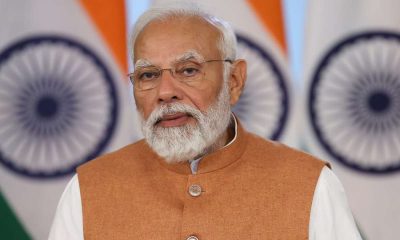
 2024 Lok Sabha Elections14 hours ago
2024 Lok Sabha Elections14 hours agoPM Modi calls for high voter turnout in second phase of Lok Sabha elections 2024, says your vote is your voice
-
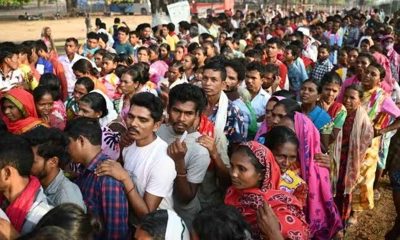
 2024 Lok Sabha Elections9 hours ago
2024 Lok Sabha Elections9 hours agoLok Sabha election 2024: Nearly 50% voter turnout recorded in second phase till 3 pm
-
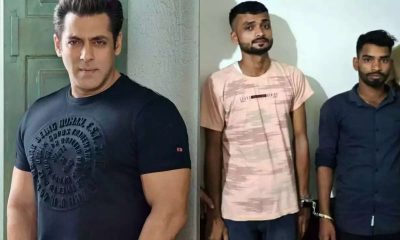
 India News13 hours ago
India News13 hours agoSalman Khan house firing case: NIA interrogates arrested shooters Sagar Pal, Vicky Gupta for three hours
-
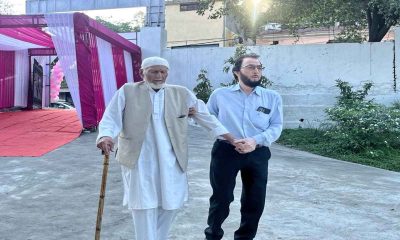
 2024 Lok Sabha Elections12 hours ago
2024 Lok Sabha Elections12 hours agoLok Sabha elections 2024: 102-year-old man walks to polling booth to cast his vote in Jammu
-
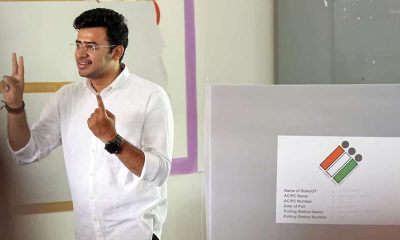
 2024 Lok Sabha Elections7 hours ago
2024 Lok Sabha Elections7 hours agoElection Commission books BJP MP Tejasvi Surya for seeking votes in the name of religion

